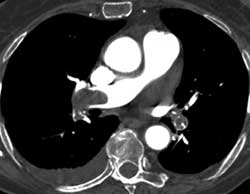
The theme for this week’s two minute talks was Falls.. This fitted nicely with the week’s paper which was Will My Patient Fall? David A. Ganz; Yeran Bao; Paul G. Shekelle; Laurence Z. Rubenstein. JAMA 2007;297 77-86
Dr Gunn told us that falls are common with anannual incidence of 30-40% in the over 65s. Her number crunching paper also highlighted that 10-15% of falls result in a fracture and that one in four of the elderly who fracture a hip die within 6 months. Of the survivors of hip fracture 50% do not return to independent living.
Dr Richardson gave us a comprehensive list of cases of falls on his handout and suggested we use the mnemonic DIME to remember these: Disease, Impairment, Medication, Environment. Lets see who can recall the acronym next week. Thiamine all round to those who forget.
Dr Bayati outlined the investigations that could be employed in identifying patients at risk of falls and finding correctable aspects.
Dr Rymaczeska talked about reducing falls by multidisciplinary input (what’s that?). Important specific points were limiting the number of medications, modifying home hazards, education and exercise.
The JAMA paper concludes with Falls are a treatable geriatric syndrome. Screening for fall risk is as easy as asking, “Have you had any falls in the past year?” and then inquiring about gait or balance problems if the patient has not had a fall. Screening is the first step in preventing future falls and the major injuries that can result from falling. By performing a multifactorial fall assessment on a patient who screens positive and then treating the patient's risk factors for falling, falls can be reduced by 30% to 40%.
Next Week’s topic is the antibiotic treatment of chronic bacterial infection: so two minutes please on:
Brain Abscess (ZB)
Osteomyelitis (MRy’s successor)
Septic arthritis (MRi)
Endocarditis (HR)
Evidence for OPAT (HG)
The reading for next week is Paying Attention: from Zen and the art of motorcycle maintainence. Robert Pirsig. I have left a copy on the ward.
Interesting topics
Pulmonary embolus
Fractured rib
Cerebral Haemorrhage
MJM

